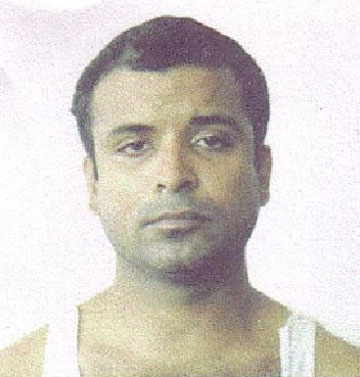Roger Khan, who was recently released from prison after serving almost ten years of a 15-year sentence for drug trafficking, is awaiting the issuance of an emergency travel certificate in order for him to travel back to Guyana.
This is according to his local attorney, Glenn Hanoman, who told Stabroek News yesterday that the American authorities are waiting on the Guyana Embassy in Washington to issue the document so that they can accompany Khan back to Guyana.
Hanoman said he and his client are both unaware if the process has started as yet.
“Apparently the travel document can be emailed but we don’t have any clue and my client is not being….they don’t tell him anything. I am in touch with my client…but they don’t tell him if the process has started or if they have requested it,” Hanoman said.
Hanoman said the issuance of the document is the only thing preventing Khan from returning to Guyana.
As a matter of fact, Hanoman said he had expected that Khan would have already been back in Guyana by now. “I thought he (Khan) would have been here already,” he said.
When asked about possible charges against Khan upon his return, Hanoman said he has been in contact with local police, who have not indicated anything about such charges to him.
“Certainly, I have met with the police, the Crime Chief and everybody else weeks ago and I am assuming there are no charges because I particularly asked them,” Hanoman added.
He further explained that following his release, Khan appeared before an immigration judge and waived his rights in relation to the deportation proceedings since neither local police nor the Government of Guyana has indicated that he is wanted for any criminal offence.
“…A lot of people who are being deported, most people in fact, they sometimes can fight their deportation, which is why Mr Khan had to appear before a judge so they can tell him of his rights to deportation… Now, because the police here have not indicated that he is wanted for any criminal offence nor has the state of Guyana requested his extradition for any criminal offence, acting on that he waived his rights to stay there because there is no indication of any criminal offences. So, because of that, he waived his rights to contest the deportation. So, I don’t think there is anything,” Hanoman explained.
Hanoman further contended that there has never been any evidence linking his client to any crime here.
Khan was sentenced after he pleaded guilty to trafficking in 150 kilogrammes of cocaine, witness tampering and gun-running.
Following his release from prison on July 8th, Khan was being kept in the custody of the U.S. Immigration and Customs Enforcement (ICE).
ICE is the law enforcement agency of the federal government of the US tasked to enforce the immigration laws of the country and to investigate criminal and terrorist activity of transnational organisations and aliens within the United States.
ICE on its website had said that Khan was “in custody” at the Krome North Service Processing Center detention facility.
In October of 2009, while sentencing Khan, US Federal Judge Dora Irizarry had stated that following his prison term he would be placed on five years’ supervised release, but would more than likely be deported.
She had warned him that if he re-entered the US illegally after deportation, he would be arrested and sentenced to a much longer prison term than 15 years.
In her comments during the sentencing, Judge Irizarry had stated that while no sentence imposed on Khan would make right whatever atrocities he had committed, the fact that he would serve time in a US prison meant that justice has been served. She had sentenced him to two terms of 15-years and one term of 10 years, all of which ran concurrently.






